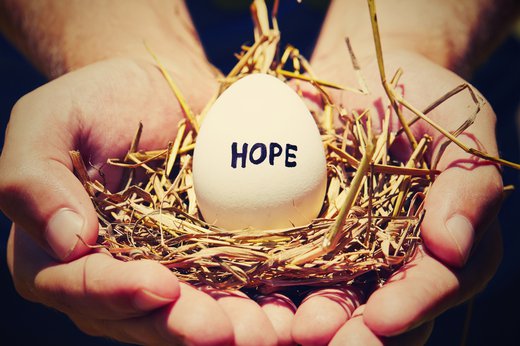The Empty Nest: Your Secondary Infertility Options

Baby fever strikes again! Your first bundle of joy, who it seems was just waddling around the playroom, is now walking the halls of their high school or college dorm. With your new empty nest, you may be experiencing the familiar longing to be pregnant again and grow your family.
But, as a woman in her upper 30s, 40s or even 50s, having a doctor tell you that you have a slim chance of conceiving naturally again is a tough pill to swallow.
At this point, should I even try to get pregnant again?
Fortunately, there’s hope for many women who feel they still have more motherly love to share with a precious newborn baby. Let’s explore a few treatment options for women faced with secondary infertility.
Secondary Infertility
Secondary Infertility is defined as the inability to conceive a child naturally after achieving a first pregnancy. This could be due to several factors including age, weight, hormonal imbalances and egg quality.
We know that a woman’s fertility begins to decline around age 34, and once she reaches her 40s, her likelihood of having a baby naturally is around 5%. At the same time, her likelihood of having a miscarriage increases. As a woman ages, chromosomes develop different issues, and she is more likely to have a lost pregnancy.
IVF Treatment Process
Traditional in vitro fertilization has proven to be a great option for many women who experience irregular ovulation, fallopian tube blockage, or other conditions that can affect their ability to conceive naturally. The IVF process starts by stimulating egg growth in your ovaries with hormone injections, and then extracting those eggs to be fertilized immediately or frozen for future use.
While this process is successful for some, for many women 35 and older, their eggs have already begun to lose their natural viability. In this case, donor egg IVF can be a great option to get you one step closer to achieving the family of your dreams.
Donor Egg IVF
Coping with the fact that you won’t be able to get pregnant with an egg of your own can be devastating. Even with the success of already having a child nearing adulthood, you may still feel a sense of loss and even inadequacy.
It’s important to remember that while you can’t control your diagnosis, your path to parenthood doesn’t have to lead to a dead end. With donor egg IVF, you receive just one very special cell, which when combined with your partner’s sperm forms an embryo that enables you to carry your baby and “weave” him or her into the masterpiece they will soon become. This is great news for those who yearn to have another child, even years after raising a first or second.
Explore Your Options
In the end, the decision to use a donor egg is all yours! Try not to focus on the origin of the egg, but instead, celebrate the fact you can choose such an important part of your child’s life.
California Cryobank’s donor egg database offers a vast range of diverse donor options you can browse from the comfort of your home. From race and hair color, to family history and personal motivations, you’ll be able to learn more about each of our donors, down to the smallest detail.
Whether you’d like to start the donor egg IVF process right away, or if you still need more time, go with your gut instinct! With so many new-age scientific advancements behind donor IVF treatment, modern technology has truly caught up to our desire to have children when we’re ready to have them. Give us a call at (240) 778-6210 or email us at CCBeggs@cryobank.com to learn more about our program and get started today!
Not ready to contact us yet?
Feel free to review our process or take a look at our donors while you decide!
Categories
Latest Posts
- Pride, Parenthood and Possibility: A Guide for Gay Dads Using Frozen Donor Egg
- Victoria’s Story: Choosing Donor Egg and Beyond
- Heartbreak, jealousy, and then one ‘golden egg’. How actress Camille Guaty finally became a mom with donor egg
- Empowering Your Family Dreams: Accessing Fertility Coverage Made Simple
- Donor Egg Bank USA’s Partner Summit 2024
- Planning, Painting and Picking: A Donor Egg Bank USA Employee’s Journey to Motherhood
- Real Stories: A Path to Parenthood Through Donor Eggs
- Mental Health and Infertility 101: What You Should Know
- Mark Yourself as a Resource During National Infertility Week®
- 5 Reasons It’s Not Your Fault You’re Not Pregnant
Comments
Nice blog.
Submitted by Reproductive Sciences Medical Center 7 years, 2 months ago
Share Your Thoughts